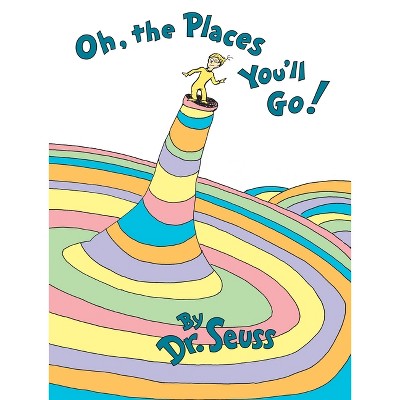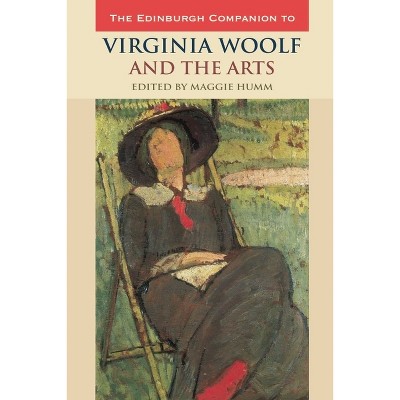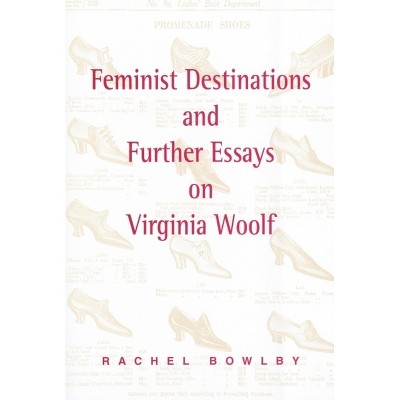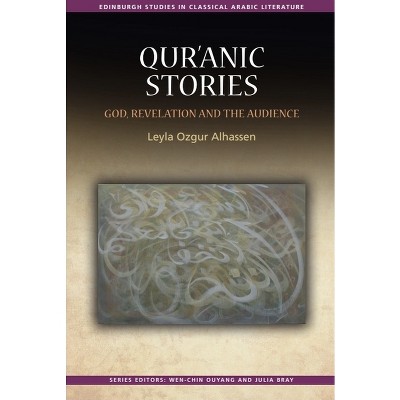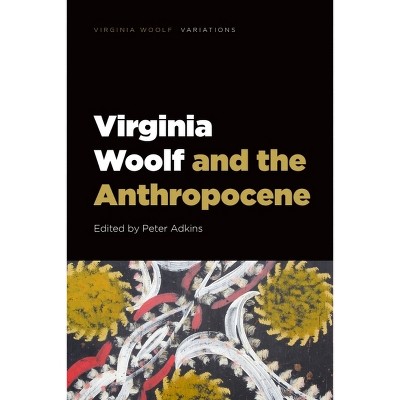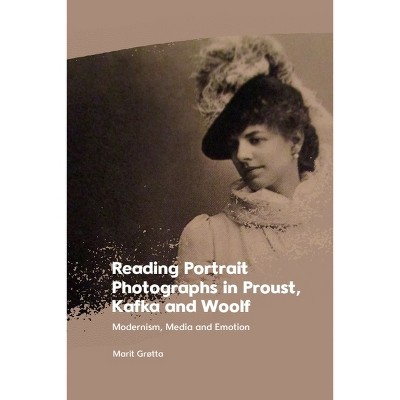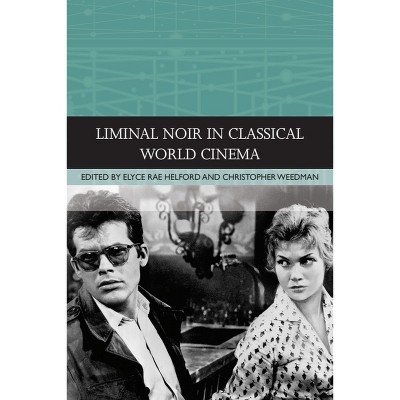About this item
Highlights
- This study is a groundbreaking investigation into the formative influence of music on Virginia Woolf's writingIn this unique study Emma Sutton discusses all of Woolf's novels as well as selected essays and short fiction, offering detailed commentaries on Woolf's numerous allusions to classical repertoire and to composers including Bach, Mozart, Beethoven and Wagner.
- About the Author: Emma Sutton is Senior Lecturer in English at the University of St Andrews, Scotland.
- 184 Pages
- Literary Criticism, European
Description
About the Book
This groundbreaking study explores the formative influence of classical music on Woolf's writing, illustrating the importance of music to Woolf's domestic, social and creative lives.
Book Synopsis
This study is a groundbreaking investigation into the formative influence of music on Virginia Woolf's writing
In this unique study Emma Sutton discusses all of Woolf's novels as well as selected essays and short fiction, offering detailed commentaries on Woolf's numerous allusions to classical repertoire and to composers including Bach, Mozart, Beethoven and Wagner. Sutton explores Woolf's interest in the contested relationship between politics and music, placing her work in a matrix of ideas about music and national identity, class, anti-Semitism, pacifism, sexuality and gender. The study also considers the formal influence of music - from fugue to Romantic opera - on Woolf's prose and narrative techniques. The analysis of music's role in Woolf's aesthetics and fiction is contextualized in accounts of her musical education, activities as a listener, and friendships with musicians; and the study outlines the relationship between her 'musicalized' work and that of contemporaries including Joyce, Lawrence, Forster, Mansfield and Eliot.
Key Features:
Analysis of music, national identity and war in The Voyage Out, Jacobs Room and Mrs Dalloway
Close reading of Wagner's influence on the plot and narrative techniques of The Voyage Out
Analysis of music and philo- and anti-Semitism in The Years
Innovative reading of the 'fugal' structure of Mrs Dalloway
From the Back Cover
*AUTHOR-APPROVED* 'Jean Rhys's persistent "strangeness" continues to unsettle the theoretical categories used to interpret her work and our own social structures. These new essays by leading Rhys scholars offer fascinating insights into Rhys's oeuvre and its influence on twenty-first century understandings of global modernism, ecocriticism, affect studies, and posthumanist theory. These perspectives, by Rhys and her critics, are essential for these new times.' Judith Raiskin, Associate Professor at the Women's and Gender Studies Department, University of Oregon Presents new critical perspectives on Jean Rhys in relation to modernism, postcolonialism, and theories of affect Jean Rhys (18901979) is the author of five novels and over seventy short stories. She has played a major figure in debates attempting to establish the parameters of postcolonial and particularly Caribbean studies, and although she has long been seen as a modernist writer, she has also been marginalized as one who is not quite in, yet not quite out, either. The 10 newly commissioned essays and introduction collected in this volume demonstrate Jean Rhys's centrality to modernism and to postcolonial literature alike by addressing her stories and novels from the 1920s and 1930s, including Voyage in the Dark, Quartet, After Leaving Mr. Mackenzie, and Good Morning, Midnight, as well as her later bestseller, Wide Sargasso Sea (1966). The volume establishes Rhys as a major author with relevance to a number of different critical discourses, and includes a path-breaking section on affect theory that shows how contemporary interest in Rhys correlates with the recent 'affective turn' in the social sciences and humanities. As this collection shows, strangely haunting and deeply unsettling, Rhys's portraits of dispossessed women living in the early and late twentieth-century continue to trouble easy conceptualisations and critical categories. Erica L. Johnson is an Associate Professor of English at Pace University in New York. She is the author of Caribbean Ghostwriting (2009) and Home, Maison, Casa: The Politics of Location in Works by Jean Rhys, Marguerite Duras, and Erminia Dell'Oro (2003), and is the co-editor with Patricia Moran of The Female Face of Shame (2013). Patricia Moran is the author of Word of Mouth: Body/Language in Katherine Mansfield and Virginia Woolf; Virginia Woolf, Jean Rhys, and the Aesthetics of Trauma; and co-editor of Scenes of the Apple: Food and the Female Body in 19th and 20th-Century Women's Writing and The Female Face of Shame. Formerly Professor of English at the University of California, Davis, she is now Lecturer in English at the University of Limerick. Cover image: Detail from Brassai's photograph of Rue Quincampoix. 1930-1932. (c) ESTATE BRASSAÏ -RMN Cover design: [EUP logo] www.euppublishing.com ISBN 978-1-4744-0219-4 BarcodeReview Quotes
...should be acquired as a matter of priority by any academic library wanting to keep its collection of Woolf scholarship up to date.--JAMES ACHESON "Journal of Language, Literature and Culture, 62.2"
Persuasive and engrossing from the outset, this much needed, wide-ranging and authoritative work is a substantial contribution to Woolf studies. Invited to attend afresh to her writings, we close Sutton's book retuned to Woolf's complexities and reawakened to her meanings.-- "David Bradshaw, Oxford University"
Sutton's listening is both attentive and inventive, and brings a new sophistication and subtlety to our understanding of musical-literary relations in modernism.--Will May, University of Southampton "The Review of English Studies"
Sutton's readings of Woolf's writing are fresh and mature, full of new insights and precise contextualization, and capture the pitch of Woolf's writing just right.--Andrea Zemgulys "English Literature in Transition, 1880-1920, Volume 58, Number 2"
This fascinating and learned study opens up quite new paths for exploring Virginia Woolf's writing. It also gives a vivid portrait of musical life in the earlier twentieth century and the arguments around nationalism and gender. Dr. Sutton demonstrates the presence of Wagner and of Beethoven in Woolf's formal experiments.-- "Gillian Beer, University of Cambridge"
About the Author
Emma Sutton is Senior Lecturer in English at the University of St Andrews, Scotland. Her publications include Aubrey Beardsley and British Wagnerism in the 1890s (Oxford UP, 2002), and Opera and the Novel (co-edited with Michael Downes, 2012). She is a contributor to Cambridge UP's forthcoming Wagner Encyclopedia, is editing The Voyage Out for their scholarly edition of Woolf's work and has written widely and broadcast on music and literature.Shipping details
Return details
Trending Fiction

